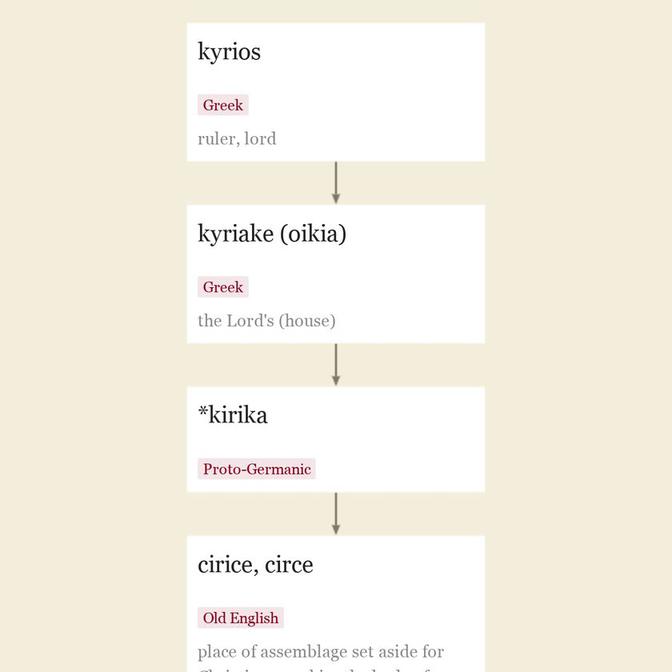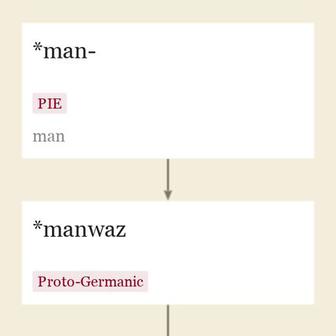churchman n.
"
Entries linking to churchman

Old English cirice, circe "
This is probably [see extensive note in OED] borrowed via an unrecorded Gothic word from Greek kyriake (oikia), kyriakon doma "
Greek kyriakon (adj.) "
The word also was picked up by the Slavic tongues, probably via Germanic (Old Church Slavonic criky, Russian cerkov). Finnish kirkko, Estonian kirrik are from Scandinavian. Romance and Celtic languages use variants of Latin ecclesia (such as French église, 11c.).
Phonetic spelling from c. 1200, established by 16c. For vowel evolution, see bury. After the Reformation, church was used for any particular Christian denomination agreeing on doctrine and forms of worship.
As an adjective, "

"
Sometimes connected to root *men- (1) "
Specific sense of "
Man also was in Old English as an indefinite pronoun, "
As "
Man-about-town "
So I am as he that seythe, 'Come hyddr John, my man.' [1473]
MANTRAP, a woman's commodity. [Grose, "Dictionary of the Vulgar Tongue," London, 1785]
At the kinges court, my brother, Ech man for himself. [Chaucer, "Knight's Tale," c. 1386]
updated on November 18, 2017